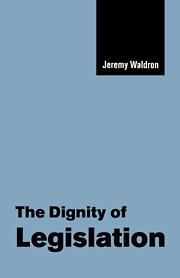6 - The physics of consent
Published online by Cambridge University Press: 15 December 2009
Summary
I
It is, I think, remarkable in our tradition how little sustained discussion there has been of the principle of majority-decision – I mean sustained discussion of its nature, basis, and justification. There is a line in Aristotle, a few lines in Leviathan, a page in Locke's Second Treatise of Government, and some tantalizing and ambiguous comments in Rousseau's Social Contract. None of these is remotely satisfactory as a philosophical defense of the use that is made of the majority principle by the theorist in question, though, as we shall see, the few lines that there are in Hobbes and Locke may provide the starting point of a satisfactory account.
There is more in the late eighteenth-century writings of Condorcet – that's Marie-Jean-Antoine-Nicolas Caritat de Condorcet – and much more in twentieth-century political science, due largely to the efforts of social choice theorists who have been influenced by Condorcet's Essay on the Application of Mathematics to the Probability of Decisions Reached by Majority Vote or who (whether under his influence or not) have explored the paths which he pioneered. However, as a couple of recent editors observed, “Condorcet has never entered the canon of ‘great books’ in courses on political theory in the English speaking world.” And so our question remains: why is majority-decision so under-theorized in the canon?
It is no good offering a Hegelian answer – that, since universal suffrage was established as a political reality only in the twentieth century, we should not expect the owl of Minerva to have turned its attention to the issue much before now. For in fact, majority-decision is at least as old as Athenian democracy.
- Type
- Chapter
- Information
- The Dignity of Legislation , pp. 124 - 166Publisher: Cambridge University PressPrint publication year: 1999

